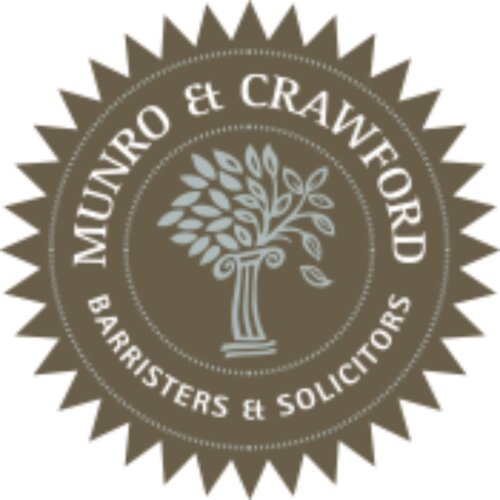Best Elder Abuse Law Lawyers in Vancouver
Share your needs with us, get contacted by law firms.
Free. Takes 2 min.
List of the best lawyers in Vancouver, Canada
About Elder Abuse Law in Vancouver, Canada
Elder abuse law in Vancouver, Canada, focuses on protecting the rights and well-being of older adults who may be experiencing physical, emotional, or financial abuse. This area of law ensures that seniors receive the protection they need and that perpetrators of abuse are held accountable. Elder abuse can occur in various settings, including in private homes, assisted living facilities, or nursing homes. In Vancouver, as in the rest of British Columbia, elder abuse is taken seriously by both legal authorities and social services, with frameworks in place to address and prevent abuse.
Why You May Need a Lawyer
If you or a loved one is experiencing elder abuse, it may be necessary to consult a lawyer for several reasons:
- Understanding Your Rights: A lawyer can help you understand the legal rights you or your loved one have and what steps can be taken to protect them.
- Filing Complaints: Legal assistance may be needed when filing complaints with police or regulatory bodies.
- Seeking Protection Orders: A lawyer can help obtain a protection order to ensure your safety or that of a loved one.
- Financial Recovery: If financial abuse has occurred, a legal professional can guide you on how to recover lost assets.
- Representation in Court: Should legal proceedings become necessary, a lawyer can provide representation and support throughout the process.
Local Laws Overview
Vancouver, being part of British Columbia, adheres to several provincial laws relevant to elder abuse, including:
- Adult Guardianship Act: This act provides a legal framework for responding to reports of abuse, neglect, and self-neglect.
- Health Care (Consent) and Care Facility (Admission) Act: Protects seniors by ensuring informed consent for health care and residential facility admissions.
- Community Care and Assisted Living Act: Regulates the operation of care facilities to ensure residents’ safety and proper living conditions.
The law in Vancouver also involves various protective services and community resources designed to prevent and respond to elder abuse effectively.
Frequently Asked Questions
What constitutes elder abuse?
Elder abuse can be physical, emotional, financial, or form of neglect. It involves harm or distress to an older adult, usually by someone in a position of trust.
How can I tell if someone is being abused?
Warning signs include unexplained injuries, sudden changes in financial status, withdrawal from social activities, or poor hygiene and nutrition.
Is elder abuse a criminal offense?
Yes, certain forms of elder abuse can be criminal offenses in Canada, such as physical assault, theft, or fraud.
Who do I report suspected elder abuse to?
In Vancouver, you can report to the local police, designated agencies under the Adult Guardianship Act, or provincial services like Seniors Abuse and Information Line (SAIL).
Can elder abuse happen in care facilities?
Yes, elder abuse can happen in various settings, including long-term care facilities and assisted living environments.
What should I do if I suspect financial abuse?
Contact a lawyer to review the situation, report the incident to the authorities, and alert the institution managing the individual's finances.
What legal protection is available for victims?
Victims can seek protection orders, financial restitution, and court intervention to stop ongoing abuse and prevent future harm.
How do elder abuse laws protect seniors' rights?
Laws in British Columbia ensure that seniors have access to resources, legal recourse, and protection from various forms of abuse and neglect.
Are there specific resources for Indigenous seniors facing abuse?
Yes, there are culturally relevant services and resources available for Indigenous seniors through both governmental and non-profit organizations.
Can I intervene if I know someone is being abused?
It is crucial to report your concerns to the relevant authorities to ensure professional intervention while respecting the victim's autonomy.
Additional Resources
For further assistance, consider reaching out to the following resources:
- Seniors First BC: Provides legal information, victim services, and advocacy for older adults.
- BC Centre for Elder Advocacy and Support: Offers legal services related to elder abuse and elder law education.
- Seniors Abuse and Information Line (SAIL): A confidential help line for older adults needing support or information.
Next Steps
If you need legal advice regarding elder abuse, here are the steps to take:
- Document Everything: Keep records of incidents, correspondences, and any evidence that may support your case.
- Consult a Lawyer: Seek legal counsel specializing in elder law or elder abuse cases to understand your options.
- Report to Authorities: File a report with the appropriate authorities if you believe a crime has occurred.
- Reach Out for Support: Use community resources like hotlines and support groups for additional assistance and guidance.
Understanding elder abuse law and having the right support can make a significant difference in protecting the rights and well-being of older adults. Taking informed and timely action can help ensure safety and justice for victims of elder abuse in Vancouver.
Lawzana helps you find the best lawyers and law firms in Vancouver through a curated and pre-screened list of qualified legal professionals. Our platform offers rankings and detailed profiles of attorneys and law firms, allowing you to compare based on practice areas, including Elder Abuse Law, experience, and client feedback.
Each profile includes a description of the firm's areas of practice, client reviews, team members and partners, year of establishment, spoken languages, office locations, contact information, social media presence, and any published articles or resources. Most firms on our platform speak English and are experienced in both local and international legal matters.
Get a quote from top-rated law firms in Vancouver, Canada — quickly, securely, and without unnecessary hassle.
Disclaimer:
The information provided on this page is for general informational purposes only and does not constitute legal advice. While we strive to ensure the accuracy and relevance of the content, legal information may change over time, and interpretations of the law can vary. You should always consult with a qualified legal professional for advice specific to your situation.
We disclaim all liability for actions taken or not taken based on the content of this page. If you believe any information is incorrect or outdated, please contact us, and we will review and update it where appropriate.













